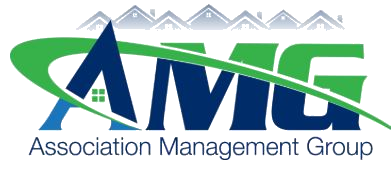HOA management companies are essential to a well-run HOA or condominium community. However, if you are new to these companies, you may not be sure what tasks you can expect an HOA management company to help you with.
Don’t despair. In the rest of this article, we answer that very crucial question.
The Top 10 Tasks That an HOA Management Company Can Help You With
An HOA management company provides a wide range of services to help effectively manage and maintain a community. Below we describe the top 10 tasks an HOA management company can assist you with.
1) Administrative support
Administrative duties often provide the biggest drain on Board resources. They can be time-consuming and monotonous. An HOA management company can take on all these tasks, including the following.
· Budgeting
· Coordinating meetings
· Answering phone calls and emails
· Creating reports
2) Common area maintenance
The common areas are the heart of an HOA. These are spaces for homeowners to gather and the community to come together. The best HOAs have immaculate common areas, a goal an HOA management company can help you achieve. You can expect the following common area maintenance services from these companies.
· Maintain storage areas
· Enforce rules and regulations
· Hire and oversee vendors
· Manage trash and yard maintenance in common areas
3) Vendor management
Vendors do most of the services provided to HOAs. Your Board can spend much time hiring and maintaining vendor relationships. And in some crowded specialties, finding the best vendors can be a challenge.
With HOA management companies, those issues go away. They will provide the following services.
· Interview and hire vendors
· Manage contracts
· Obtain bids
· Oversee vendor performance
4) Financial management
One of the most crucial tasks of an HOA is financial management. A financially sound community will attract homeowners and stand out. HOA management companies can help you keep your HOA in good financial standing by doing the following.
· Collect and manage dues
· Create a budget
· Handle financial reporting and statement
· Pay bills
5) Community improvement projects
HOA communities should always attempt to improve themselves. Undertaking regular community improvement projects, such as tree planting or trash pickup days, are a good way to do this. An HOA management company can organize and oversee all projects to improve your community.
6) Communication
You will have less conflict in your HOA if you communicate well. Let your HOA management company stay on top of communication with residents so you do not have to. They will do this in the following ways.
· Create a community website and online portal
· Provide online payment systems
7) Board training
HOA Boards are comprised of volunteers. They may need training to be the best at their job. HOA management companies can provide this training, along with the following:
· Help in strategic planning and decision-making
· Provide guidance
· Offer their expertise
8) Dispute resolution
No matter how well-run your HOA is, there will be conflicts. When disputes happen, an HOA management company can be an objective third party and help you resolve those issues. Common disputes that HOA management companies can handle include
· Noise complaints
· Property line encroachments
· Rule violations
9) Community policies enforcement
Everyone in the HOA needs to abide by the rules. That is why all HOAs have a CC&R, covenants, conditions, and restrictions. Your HOA management company can help enforce the rules in these documents.
10) Billing and collections
Finally, HOA management companies can assume the two important billing and collections tasks. These involve the following.
· Bill residents
· Collect dues
· Handle delicate accounts
· Issue delinquent notices
If you are ready to experience the difference an experienced HOA management company can make, contact Association Management Group (AMG). Our experience will translate into a successful community for you.






































